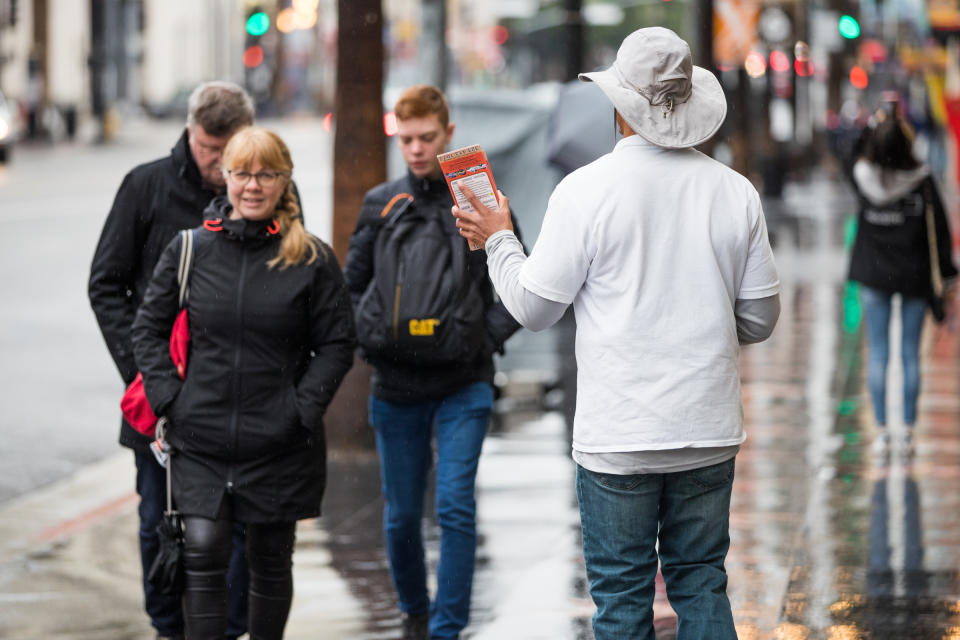How to weather a coronavirus cash crunch if you have no emergency fund
As the coronavirus hammers airlines, hotels, and other industries and forces school closures and other shutdowns across the country, Americans may find they must miss work without getting paid.
Typically, turning to emergency savings — three to six months of expenses is recommended — is the best way to get through those periods, according to experts, but a significant number of Americans lack those funds.
Only two in five U.S. adults have enough emergency savings to pay an unexpected $1,000 expense, according to a 2019 survey from Bankrate. Otherwise, they would need to borrow money in some way.

“The situation that involved last year’s federal employee furlough was a wake-up call,” said Bruce McClary, the spokesman for the National Foundation for Credit Counseling. “People were not prepared enough with cash savings to be able to sustain themselves for more than a week or two.”
For those without enough savings, McClary offers these options to deal with reduction in cash flow.
File your taxes
Tax refunds can help cover expenses during periods of unpaid leave from work. So far, 52.7 million Americans already received their refund, or less than half than the number of taxpayers who received one last year.
This year, the average refund is $3,012, but taxpayers must first file their tax returns to get their refunds.
Read more: How to file taxes: The full breakdown
“Getting the most out of your money means avoiding costly rapid refund loans,” McClary said. “It's best to get the refund from the IRS through direct deposit.”
Skip a big payment
Another way to relieve a cash crunch is asking your mortgage lender or auto lender if they have a program where you can make an interest-only payment and then skip a month on your payment.
Consumers who have been paying their loans on time and are in good standing may get this option for one month.

“It's probably not something you're going to be able to repeat very often or at all,” McClary said. “So you want to make sure you're very strategic about when you use that.”
For private student loans, your lender or servicer may offer loan modifications or temporary hardship concessions on case-by-case basis. It’s also possible to have payments significantly reduced or to receive a forbearance, according to McClary.
Reduce or cancel payments
Americans can also reach out to their utility providers and ask whether they qualify for assistance or a reduced payment plan.
“Sometimes instead of getting a large bill during peak season, it might give you a reprieve if they were able to evenly bill you each month based on your usage patterns,” McClary said. “So that in peak season you’re not hit with a very expensive bill.”
Read more: The key to a successful budget
A reduced payment plan is often available on seasonal usage of your utilities such as your electric or heating oil. Additionally, utility companies also have hardship programs or special assistance programs which could delay the payments.
Cancelling or freezing for a month optional utilities like cable TV or streaming services subscriptions could help ease pressure on your household budget. Same for gym membership.
Internet providers like AT&T, Comcast, and Verizon — which owns Yahoo Finance — have agreed to help subscribers who can’t pay their bills due to coronavirus and won’t terminate service to customers unable to pay their bills in the next 60 days.
Turn to charitable resources
“Before you even think about borrowing money, you should look at the community charitable resources that may be available to help you get through a very difficult stretch,” McClary said.

Identify charitable resources that can provide food assistance, clothing assistance, and the kind of support that helps people stretch their budgets.
National organizations like Goodwill, Salvation Army and Red Cross have a local presence in many communities and can provide assistance to those in need. There are also local food banks and faith-based charities that can help when families require help accessing basic needs.
Sell items
“If you have items that you can sell that are of value where you can generate some quick cash that will help you avoid borrowing,” McClary said.
The items you can sell include small personal items of value, collectors’ items, or furniture you’re not using.
Borrow prudently
“It may be better for an individual to borrow from their bank or credit union and get a closed-end loan,” McClary said, rather running up balances on credit cards.
Taking a signature loan for the amount that will get you through the month will likely come with a lower interest rate than your credit card.
For people with excellent credit scores, a credit card may be an option if it offers a zero percent introductory rate. But it’s critical to pay back what you’ve borrowed before the introductory interest rate expires; otherwise, you’ll end up paying interest on the remaining balance.
Pay attention to not just the interest rate, but also any fees that come with these loans, McClary said. “You have to be focused on how much any borrowing will cost you in the long run.”
Denitsa is a writer for Yahoo Money and Cashay, a new personal finance website. Follow her on Twitter @denitsa_tsekova.
READ MORE:
How two uniquely American issues could make the coronavirus worse
AOC has a point: U.S. parental leave policy is shockingly bad compared to the rest of the world
Read more personal finance information, news, and tips on Cashay
Follow Yahoo Finance on Twitter, Facebook, Instagram, Flipboard, SmartNews, LinkedIn, YouTube, and Reddit.

 money
money 
